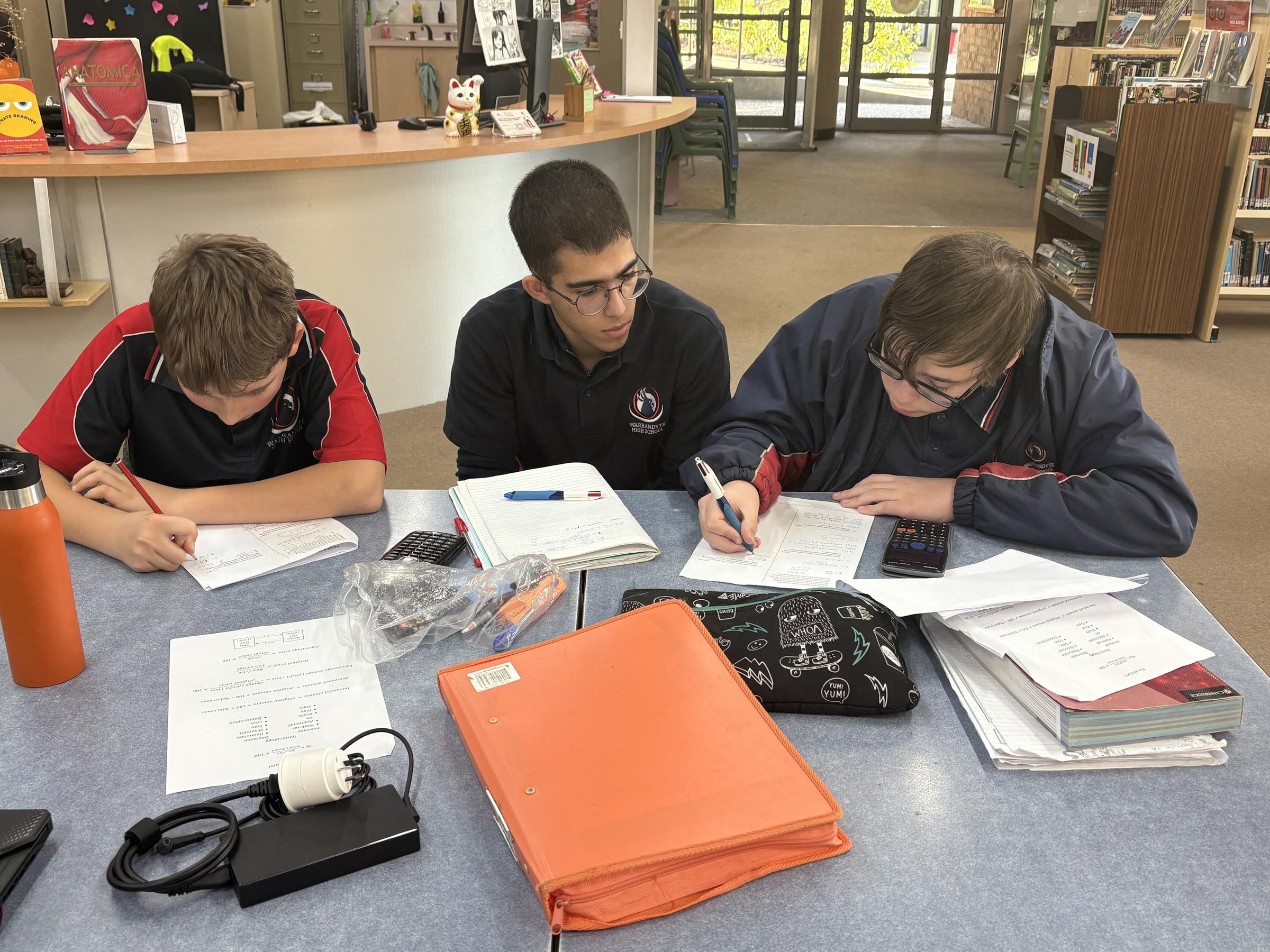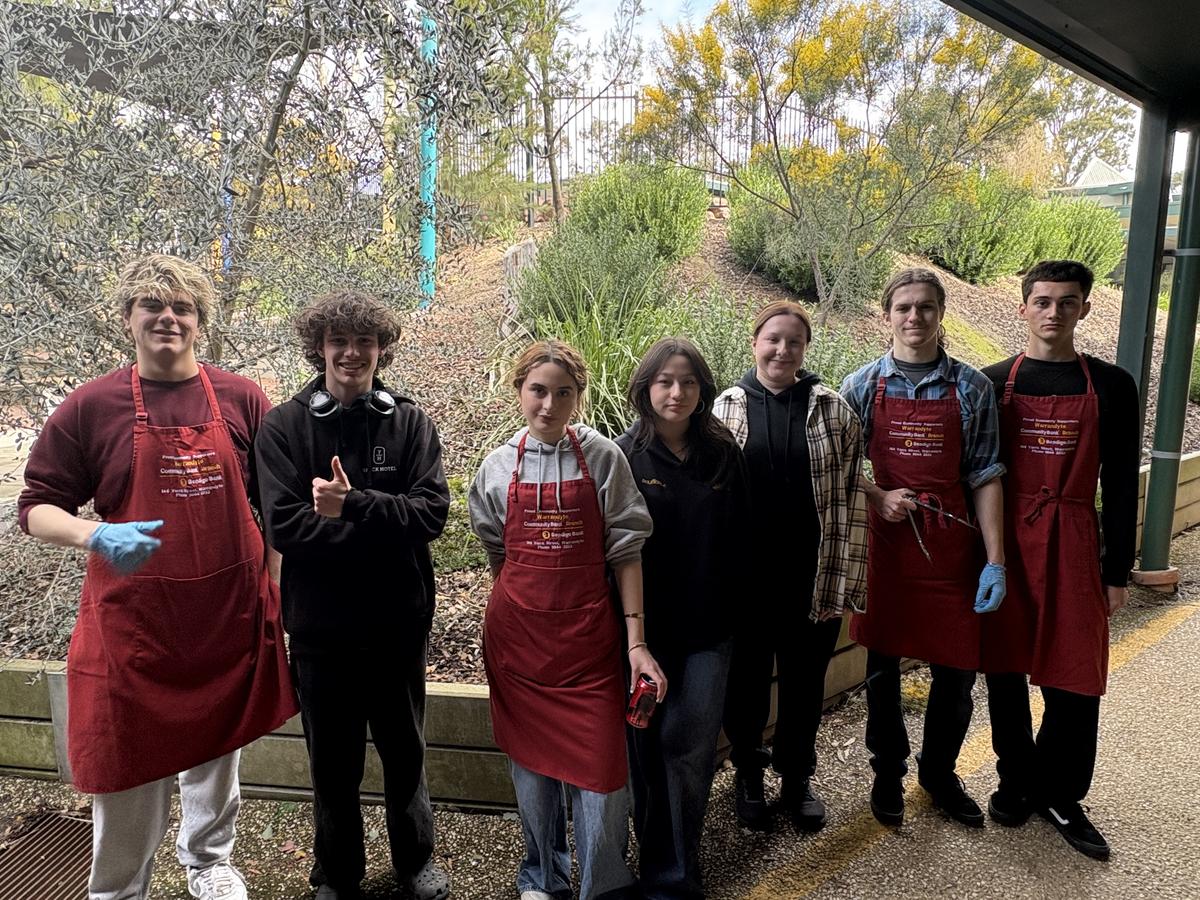Numeracy

NAPLAN 2025 Results
The Maths faculty have worked hard behind the scenes to deepen their understanding of where specific skills lie within the curriculum. The purpose of this is to accurately judge our students against the new Victorian Curriculum 2.0 in Mathematics, as well as understanding how to effectively differentiate work to target students at their point of need. This ongoing, hard work and the dedication of our students is reflected in our recent NAPLAN results. This year 79% of our Year 9 students are in the strong and exceeding proficiency level. This was above schools in our network and above the state average of 62%. A massive congratulations is extended to all students of year 9 for striving to do their personal best and challenging themselves to think deeper about how to apply their understanding as well as extend their understanding. Furthermore, we encourage all our students to continue to show our school value of Excellence – to strive to do ones best.
Numeracy Professional Learning
In issue one of the Warrandyte High School iNewsletter this year an explanation of the difference between Maths and Numeracy was provided. That is that Mathematics is a study of numbers, patterns, problem-solving and more covering topics like algebra, geometry and statistics. Numeracy on the other hand, is the ability to apply these mathematical skills in everyday life such as managing money, reading timetables and measuring ingredients. To achieve our goal of teaching numeracy whole school to increase the exposure and application of mathematical skills, staff have engaged in two professional learning sessions so far. The intent is to create a shared understanding of numeracy and increase confidence in teaching numeracy within each subject specific area. To do this staff have investigated where it appears in their curriculum area and have engaged in activities around how to read graphs and tables and use ICT to analyse data.
VCE-VM Numeracy
VCE-VM (Vocational Major) is an amazing VCE pathway that students can take at Years 11 and 12. Part of this course is the topic Numeracy where students learn to apply specific mathematical skills to a broad range of real-world scenarios. The topic encompasses six strands of Numeracy including:
- Financial Numeracy - understanding and undertaking financial transactions and making informed judgments and decisions regarding the use and management of money.
- Vocational Numeracy - relates to effectively participating in the workplace and managing the demands of work and/or vocational training.
- Personal Numeracy - relates to the mathematical requirements for personal organisational matters involving numbers, data, money, time and travel.
Civic Numeracy - relates to participating in civic life through knowing how to stay informed, and understanding government, political and social data, information and processes
- Recreational Numeracy - relates to the mathematical aspects of recreational activities including but not limited to arts, sport and social media.
- Health Numeracy - relates to accessing, understanding and using mathematical information to make decisions and act in the interests of personal and community health and well-being.
As part of the Civic Numeracy topic our Year 12 students combined efforts to engage with the school community and wider Warrandyte community to raise funds for an Australian organisation. You can read about this further in the careers section of this issue of the iNewsletter. Part of this project had students learn how to use Excel to use formulas to track expenses, compare pricing of items online, analyse survey data, calculate profit, analyse and interpret raw data from the event and draw conclusions. Whilst interpreting the data and drawing conclusions students took part in conversations around the importance of understanding what data means so as to not be persuaded by misleading statistics in advertisements.
Leanne Zammit
Numeracy Learning Specialist

